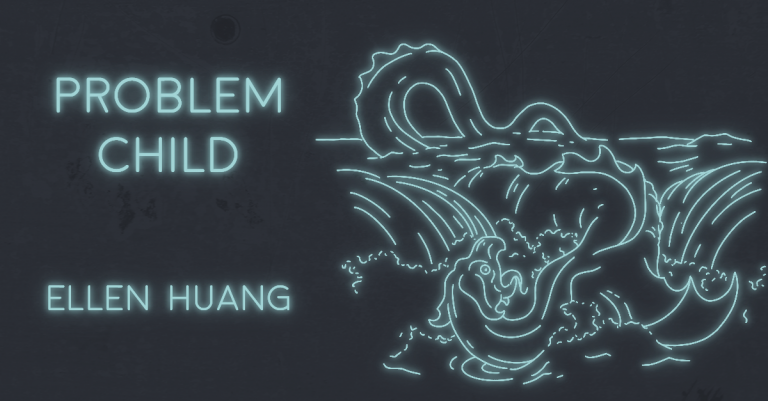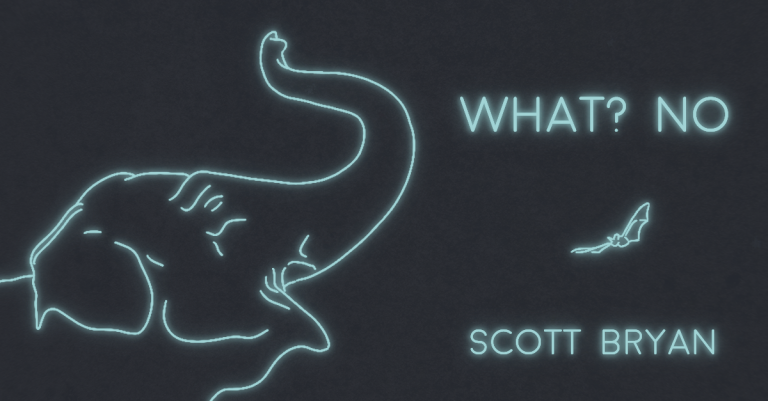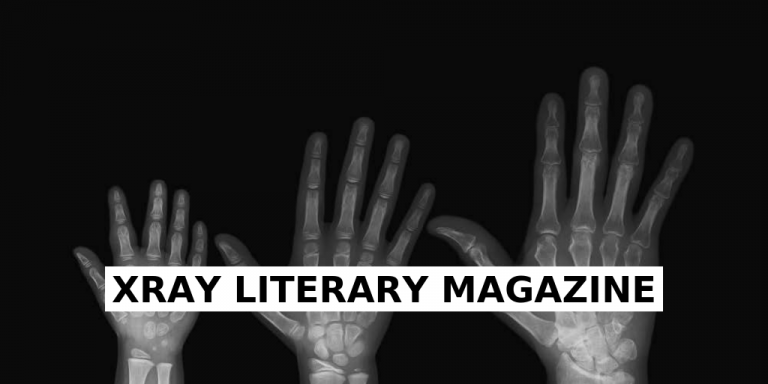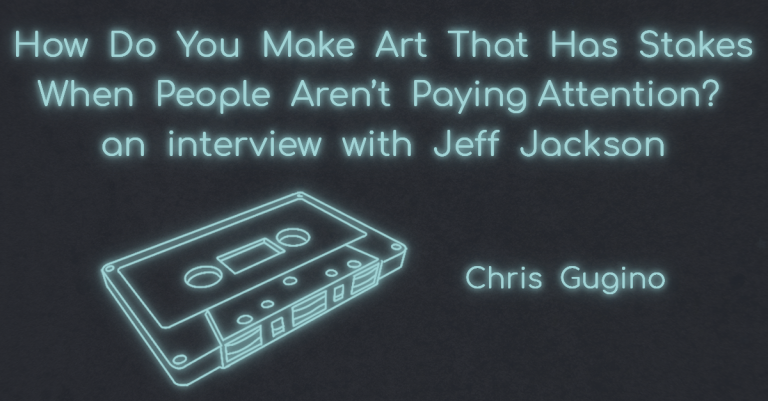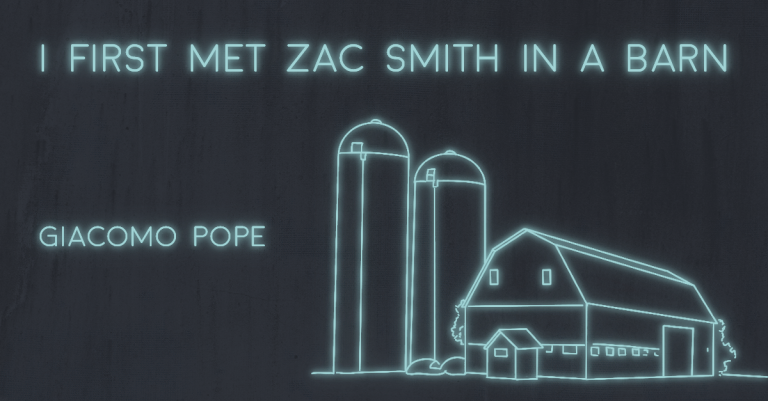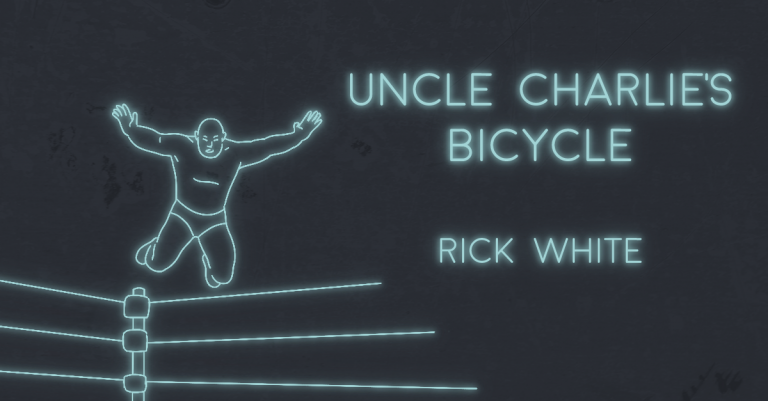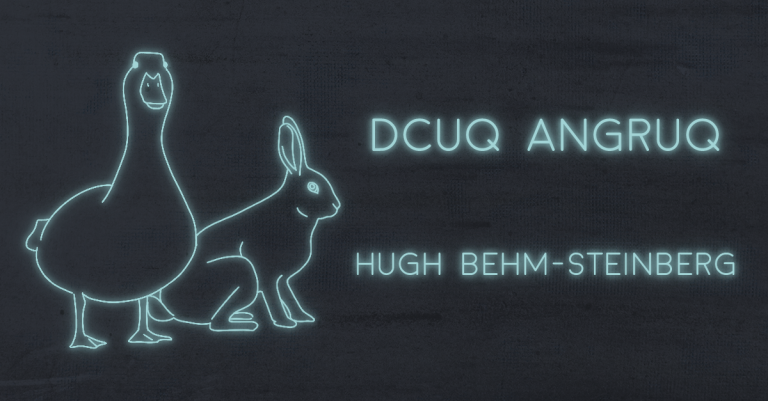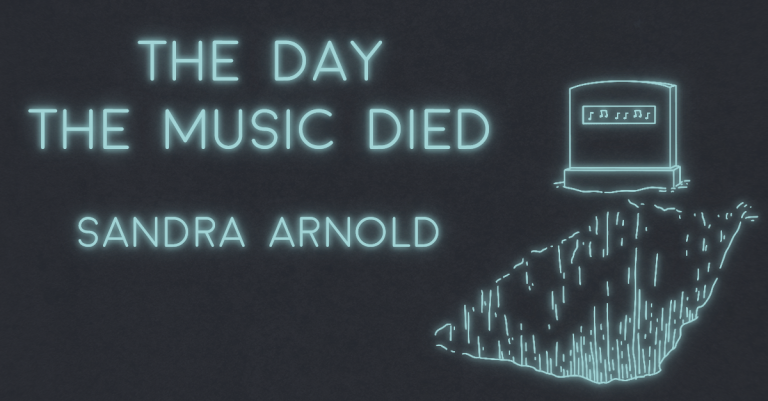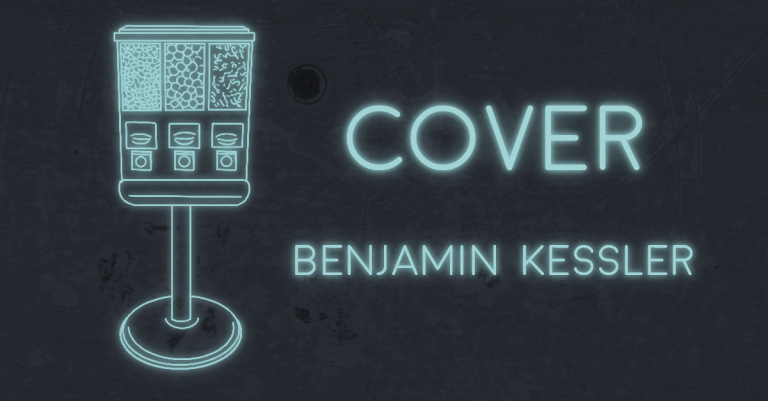jeff jackson is a writer/playwright/artist/musician. he lives in charlotte, NC, and sings, writes, and performs with the group julian calendar. in october of last year, he released his second novel, destroy all monsters, which is a beautifully twisted novel with two sides, like a record (literally, you finish reading the first side and then flip the book over and read it from the back cover, returning to the middle of the book).
destroy all monsters concerns an epidemic of musicians being murdered during their performances. there's no tangible link between the victims, their killers, or the method in which said bands are dispatched, save that the bands themselves are all a bit mediocre.
jeff was kind enough to take a few hours out of his schedule to speak with me after the book was released to discuss destroy all monsters, his earlier work, and the challenges of making lasting, impactful art in an atomized culture filled with distractions competing for one's attention. the delays in publication of this interview are all mine, but i hope that this reminds any readers out there who've been considering giving this book a read to do so. just don't go out and kill that one shitty local band. you know the one i'm talking about.
[the following interview has been edited by both myself and jeff for length, context, clarity, and probably some other shit that's got fuck-all to do with you.]
c - i was particularly excited to read this novel, having read mira corpora and novi sad and seeing the jump to—i hate to say—a 'real' publisher.
j - a larger publisher.
c - yeah, moving into working with a major publishing house, as opposed to the sort of punk rock background. so with this, you did shop this book around fairly heavily beforehand?
j - i also shopped mira corpora around heavily before ending up at two dollar radio, and—weirdly for that book—some of the really nice rejections came from big publishers and some of the really dismissive rejections came from indie houses. so with this book i wanted to give it another shot at a major house. it had a long history because i had an agent for mira corpora and she read part of the manuscript for destroy all monsters and REALLY did not like it, and we couldn't find any common ground on it. so we parted ways and i had to find a new agent first. That took a while to find the right person. and then it was a question of sending it out to publishers before FSG finally read it. i was incredibly lucky because it had a number of rejections, but i ended up with my dream house. and I ended up with jeremy davies as editor—he used to work at dalkey archive and is the perfect person for the book. he’s steeped in european literature and rock music and art films. all important threads in destroy all monsters.
c - and you started drafts on this almost ten years ago?
j - well, my notes for it go back over ten years. i didn't start writing it until six years ago, something like that. there's a lot of projects where i'm constantly taking notes and they’re slowly growing and taking side A shape. when i finished the book and was shopping it around for an agent, i started to get haunted by the idea of it being like the A side of a vinyl single or cassette. So i began to wonder what the B side might be, and i started writing it. and FSG actually bought the book not having read the B side.
c - so ‘kill city’ [the B side] was—i hate to say an afterthought, because it feels like such a vital part of the book—but really came up very late in the process?
j - it came very late in the game. the A side, to me, felt complete for a long time, and then i just couldn't shake this idea of the B side. i had a lot of friends who told me that i was crazy writing the B side, and that i was making a difficult book twice as hard to sell. i finished putting a final polish on 'kill city' about two weeks before FSG bought it.
c - wow.
j - so the timing turned out to be really good. when i was initially working on the B side, initially i thought that it could be a stand-alone novella. i thought that maybe it would be like novi sad, a small book that someone else could publish, if necessary.
c - yeah, send it to michael [salerno, australian polymath and head of kiddiepunk] and do a small run of it...
j - yeah, I thought it would be a sister book. but as i was finishing the B side, and the more i was sitting with it and polishing it, i realized it needed to be under the same covers with the A side. the two pieces—the A side ['my dark ages'] and the B side—really formed the complete destroy all monsters and they were far more intertwined than novi sad and mira corpora were.
c - definitely. i really liked how the book read like music: there were a lot of little riffs and lines and themes that got repeated and reshuffled, and sort of brought to the forefront or mixed down, that would come up throughout the book; where you would have little lines that allude to the different shootings, and then once you get into a later section you follow one of the killers into a show and expand on that thought, and the way the little repetitions carry over into the B side. it gives it almost this ghostly quality, i guess?
j - absolutely.
c - it really...it just made for incredibly engrossing reading. i read it through the first time in about six hours; i couldn't put it down.
j - that's great. my goal was to make it as propulsive as possible. even though it is a strange book with a lot of repetitions that keep folding back on themselves, it's also moving ahead.
c - to change tack a little, something i noticed between this one, novi sad and mira corpora, the setting—though it never really explicitly states in either of the first two that they take place in arcadia—the way the scenery is put together with these crumbling post-industrial towns...it pops up a lot throughout your work, and that's not what i imagine charlotte to be like, i guess?
j - well, charlotte's a lot rawer than people think. i moved here from new york city, and a lot of friends were like, 'what's it like living in the country?' meanwhile, i was looking out my window and there's a sixteen-year-old prostitute on the corner who's eight months pregnant and being picked up by johns. she's being pimped by her boyfriend and lives with her family. so there are definitely parts of charlotte that aren't exactly bucolic. but it probably comes from a bunch of different places: i grew up in aruba. behind our house were the ruins of an old hospital and old WWII fortifications where they had gun turrets and a series of rusty pipes that you could walk on through these cactus fields. my parents would let my friends and me run loose for hours at a time and explore all of that. so that sort of decayed environment is familiar to me in a primal way. and then when i lived in NYC, i lived for a number of years in the dumbo neighborhood before it was gentrified, where there were all these ancient warehouses and power stations and cobblestone streets. i would take long walks through this area because that scenery is beautiful to me. but there’s also something that felt right, at least for destroy all monsters, to set it in a town like arcadia, because i think those sorts of cities—those rust belt/post-industrial cities—they tend to create these really tight-knit scenes: music scenes, art scenes, whatever. from places i've visited and friends i've known in places like that.
c - that's exactly what it made me think of: i have a lot of family around buffalo/niagara falls and there used to be a lot of industry there, but now there's just nothing. but there's this amazing, incestuous and tight-knit hardcore scene in buffalo, that, like, 'how the fuck do they have hardcore punk in buffalo?' is the first thought, but they have nothing else to do.
j - yeah, and cleveland in the 1970s was a post-industrial nightmare where their rivers were on fire, and that's where you get pere ubu and devo and the dead boys coming out of an incredible scene because there was nothing else to do, and they took that post-industrial environment and drew upon it to make really creative music. that environment can be really fertile creatively, and it can also feel really constraining, which also felt right as a place to explore after the epidemic in the novel starts.
c - and there's definitely that sort of aspect that i see a lot in smaller punk rock scenes that, 'at the end of the day nobody's paying attention to what we're doing anyway, so just go for it,' right?
j - totally.
c - my awareness of your work came about, really like a lot of my favorite recent artists that i've found over the last eight years or so, from the community around dennis cooper's blog, with people like yourself and michael [salerno] and benedetta [de alessi; illustrator/artist], in paris, and thomas moore and things like that. have aspects of that community been helpful to you in your writing? i know you have a fairly expansive network of people in charlotte and elsewhere to help out.
j - i've been on that blog, on-and-off, since its very early days. it was hugely important to me, especially when i initially moved down to charlotte and was more isolated. the blog turned me on to so many interesting writers, books, and movies, and visual art. Also the people I’ve met, including those who are no longer on the blog, like justin taylor and gregory howard. that community has been really important.
c - oh yeah, i find myself sharing things from there all the time, and i have to tell my friends, like, 'look, i know you don't like his writing and you think it's weird and it scares the crap out of you, but read his blog, because he's turned me on to so much cool stuff.'
j - i found the blog because i read my loose thread, which was the first book of dennis cooper’s that i read, and i loved it so much. i was curious about 'how do you create this?' and it was great to be able to ask him these questions in the comments and he would answer. it was inspiring to be able to talk to a writer at that level and find out what were they thinking about certain literary choices they made.
c - just the fact that he's so open about the process, he demystifies it like, 'yeah, here, this is what you do if you want to write and try to get published.' he almost gives people tutorials on how to get involved with their art and engage with it in a more direct way.
j - yeah, he's super generous. dennis is a complete mensch.
c - yeah, that would be the word i'd use. anyway, i brought that up because something i did notice in destroy all monsters was that stylistically, it moves around a lot. there's a kineticism to it, not necessarily just in the language, but in the fact that there are sections where every couple pages, you're switching narrators, POV, you're doing these little structural/stylistic things that could almost feel like just playing around and having fun, but are executed so well that it keeps you wanting to stay there, and you get to a new section and it's, 'oh, who's he writing about now?' and you're trying to piece that together from the little structural clues. like, i thought the whole section about the boy who woke up late, it took me until almost the end of that to realize that you were writing about one of the main characters. i thought it was about one of the killers.
j - good. yeah, that misdirection is built into it.
c - it reminded me, in the little sleights of hand that occur throughout, and the bipartite narrative—where it switches and you take the characters and reshuffle them—it reminded me of two of my favorite dennis cooper books, being period and the marbled swarm, where similar games are being played throughout the narrative, though his books are so NOT narrative-focused.
j - but there is a propulsiveness to his stuff, too. gregory howard read just the A side, and he said it reminded him of period, which had never occurred to me. but i was deeply flattered, of course.
c - isn't that the fun thing of putting a piece of art into the world and getting others' interpretations on it and going, 'no, you know, i never noticed that, but it's kind of cool'?
j - yeah, definitely. the structural inventions in destroy all monsters were not there to show off, they’re there to make it more propulsive and more immersive and more exciting for the reader. i've had people say it's so experimental, and i guess it is, but all the experimentation is problem solving aimed at making a more pleasurable and immersive experience for the reader.
c - i read it through and thought it was straightforward, almost?
j - until the B side...
c - it was still fairly narrative-driven. but within the workings of that, there's a lot of fun being had and it's that sort of—if it's just experimentation for the purpose of having fun and just fucking with the reader, ultimately, i (as a reader) feel like 'who gives a shit?' but if you do something experimental and bold and you have a great story and great themes behind it (which is the case here), it elevates the work from being just another book to being a truly exciting and original book.
j - thanks. when i was young, i had a theater teacher who drilled into my head that ideally there's no difference between form and content. at the highest level, they are the same thing. and that's definitely something i aim for as much as i can.
c - to kind of go back and say that you've had people tell you it's this really experimental novel, to me, it didn't feel like that and i'm sure to yourself it didn't feel like that, but then again, we come from the background of reading cooper and mallarme and more out-there writers, where most people are used to these single-protagonist, standard narrative things where all the threads are tied up neatly into a little package at the end of the book. this doesn't necessarily leave that, which i really enjoyed.
j - there’s a huge disconnect between experimental fiction and mainstream american fiction. a lot of publishers who just read the A side, which i thought was very straightforward, were freaked out by it, by how odd it was, how different it was. a lot of the experimentation in the book are also deeply embedded. i did try to kind of 'trojan horse' this to a certain extent, to give the book a smooth surface sheen and if you want to notice some of the deeper experimentation that's happening and sink into that, you can. but you can also look past that if you want to.
c - it's not in your face, like, 'look at all this weird shit that I’m doing in this book.' it's there if you want to get in there and actually dissect the mechanics of how the narrative is assembled, but if you don't care about any of that you can just read it straight through and it lends itself well to that.
j - that approach felt right for this story.
c - where mira corpora and novi sad had almost like a ghost-like quality to them—and i'm not really sure even entirely what that says, but at the end of both of those, i felt like i left with more questions than i had answers and definitely more questions than i had going in—with destroy all monsters, it felt when you got to the end of it that it was a good ending point and—something i really liked about it—the book was almost hermetically sealed where it...obviously with the theme of mass killings at concerts, it could be this very timely political screed about gun culture in america, or whatever. but instead it creates this really tight little world where it refers to itself and only itself but without being winking or cloying or annoying and cute about it—it creates this world where it echoes itself throughout the text in a really immersive way. it really felt like for 300-ish pages that 'this is the only world you need to care about right now.'
j - well good, thanks. two of the early reactions: don delillo read it and he said that it reminded him of an ancient folk tale, which was really cool. and then when ben marcus read it, he said that it felt like a clear vision of the future and it felt like a really timely story. they each isolated something that's hopefully happening simultaneously in the book. i was trying to draw on something that's contemporary but also be steeped in rituals and dream logic and an underlying hermetic mythology.
c - yes. something that i really got into, too, was that—especially once you get into the back half of side A—it quits engaging with the epidemic and it starts engaging with the survivors and their aftermaths. and i noticed that a lot of the sort of key events in the story are: they're putting on a show to pay tribute to their friend who was killed at his last show and then they're going out to the woods to sing a song for their two friends who are now dead. [there's a] line in there when xenie and eddie are walking out in the woods and she says 'do you ever feel like the dead feel like they're haunted by the living?' and that line tied the book together for me because so much of it was concerned with these little rituals that we do to mark the absence of someone who's no longer there.
j - and one thing that has not come up in any of the reviews yet is that it's deeply a book about grief. that’s not something i wanted to put on the flap copy. but a friend of mine read it whose mother had passed away not so long ago and he was talking about how xenie's grief felt so real to him. i was really happy to hear that and that he could read it through that lens. hopefully there are a lot of different entry points into the book, depending on how you're coming at it, but i was glad that it was useful for my friend to read it from the grief angle. the A side and the B side offer two different paths to overcoming grief. the characters choose radically different ways: the way xenie chooses to overcome shaun and the way shaun chooses to overcome xenie are very, very different.
c - hers felt more confrontational and his felt more conciliatory.
j - totally. hers is, 'this all needs to be erased.'
c - yes! obliterate all traces and...destroy all monsters! holy shit, i just got the title! [laughs] and i really did love the setting of it. i spent my teenage and early twenties playing in bands, and going to see my friends' bands play, and everyone i knew was in a band. so when [xenie] said the real rebellious thing you can do now is not be in a band—i saw you mention this in another interview—that difference is now that music's all digital: when i had my first jobs in high school, every friday i would hop on the bus and ride over to the university campus because that's where the two cool record stores in town were. i would spend my day just acquiring music, where now i just go on my phone and just 'oh, i've heard good things about those guys, i'll check it out.' and you lose that deep connection in some ways—like, my memory on my phone is maxed out with music, but nine times out of ten i'll start listening to some new album and decide it doesn't grab me and i end up listening to funhouse or exile on main street again.
j - [laughs] right, right. so many of my favorite records were things that i didn't like at first and the only reason i kept listening to them is because i had paid for them and i was determined to get my money's worth.
c - 'this was an import and i am NOT wasting $25.'
j - yeah! like pere ubu's dub housing: at first I was like 'what is this shit?' but i kept playing it because it cost me some serious money and eventually loved it. some of those records took a number of spins before they clicked, but when they did, they also shifted my perception about the possibilities of music. but it wouldn't have happened if i hadn't put all those extra listens into it because i felt invested in it. but now, i'm sure there's records that i streamed and said 'that's pretty good' but never went back to, where if i gave it another five or six listens, something revelatory might happen.
c - the first album that i had that sort of moment with was loveless when i was a freshman or sophomore in high school. and just on first listen i thought—and around the same time, it was them and also jane doe by converge—both had the similar effect on me of 'i don't understand this, i feel like i'm standing in the middle of a tornado,' but the more i listened to it—like, after i got each of those records—i was listening to them constantly on my headphones for like two weeks because i had decided that i didn't get it but i needed to figure it out.
j - i had a similar thing with loveless where i dismissed it at first but i kept coming back to it and finally, when it clicked, i listened to it all the time.
c - i was at school one day and i got up early that day to get high at my friend's house before school, and i was sitting in class with my headphones on pretending to sleep. and i sat up and said 'there are actually songs on this fucking album!' like, once the wash of backwards reverb and feedback started to fade away, you could see the really pop construction of their songs, which then carries to something like destroy all monsters where once you strip away the shifting narratives and the reshuffled characters and repetitions, at its heart it is really a book looking at how people deal with grief and loss.
j - yeah, and that grief and loss is partly, i think, a loss for people, but it's also a sense of loss for the cultural possibility of music meaning something more than it does now. that cultural spark that helped electrify music so that communities could form around certain bands, identities could form around certain bands, that’s mostly missing now. there’s barely a culture of people listening to the same bands anymore.
c - i've definitely noticed that with my friends that have similar taste, i thought. like, we're all into bowie and sonic youth and mbv or whatever, but we'll meet up and recommend new bands to each other and none of our bands are even remotely the same. like, if we each name ten new bands, there might be one match.
j - yeah, it's true. the band i'm has a fairly large age range, and it's amazing how little there is in common—we sometimes don't know a lot of each other’s musical touchstones.
c - it feels like something that's happening more toward the future, where like with my group of friends, there are a lot of us that came of age in the 90s so we all have these similar touchstones and signifiers. but as the culture got more atomized, we're all coming from the same background, we all know fugazi, and the beastie boys, and sleater-kinney, but now it's completely new stuff and we all recommend bands to each other that we're sure no one's gonna get around to listening to.
j - it's an issue across the arts. the book is using music to talk about something larger. one of the questions is: how do you make art that has stakes when people aren't paying attention? it just gets lost in the cultural noise, gets swallowed in the sense of information overload. and how do you make something that isn't just adding to the noise and making the problem worse?
c - i was talking to my mother like a week ago and she was reading—justine bateman just put out memoirs and she was talking about family ties—that's the show she was on, right? anyway, that was this huge cultural phenomenon and fifty million people watched it every week and that was a top-rated show with like a quarter of the population of the country watching it.
j - yeah, the first season of twin peaks the viewership was like thirty million watching david lynch's weird shit. that stuff could move the cultural needle in a way that is just not possible now. i heard kendrick lamar complaining recently about how fast damn. disappeared. and he's not wrong, but if kendrick lamar thinks he’s not getting enough attention, what hope does anyone else have? we're at this crazy phase where stuff is just being consumed and made disposable so quickly, and i think that's happened with music more than anything else. because music can be so quickly devoured, it's been the first casualty. movies are becoming a casualty too, but because they're a little bit longer, because it takes at least ninety minutes to devour a movie versus three minutes, it has a little bit more protection. weirdly, i think books have been somewhat safer from being devoured by the internet just because it takes so long to read a book. with the caveat that the internet has destroyed everyone's attention span and no one reads.
c - i think that might be part of it. i like to hope that we're not turning into a nation of illiterates, but...
j - i hope not too. but i do think, in some ways, that books have benefited from the internet because there's been this information exchange that wasn't around when i was young. because of things like dennis's blog, it's so much easier now to find out about really cool, unusual books and writers. there's a lot of great small presses that are reissuing lost treasures. it's easier to hook into weird stuff that used to be like secret handshakes. you had to know someone who knew this alain robbe-grillet novel or whatever. and that's just not the case anymore. it's easier to disseminate that information in a positive way. the fact that a book is a physical object still means something, too. it's nice that e-book sales keep going down.
c - yeah. like, i can't read stuff on a tablet and i think a lot of people do feel that way. i had a kindle, and it can fit however many thousands of books on there, but...i like having a book.
j - i see the benefit of it if you're someone who's constantly travelling; if you're an artist who's on tour all the time, that's when a kindle starts to make sense. but I don’t like them either. for me, it's important that my novels are nice objects and do something within the physical form. the layout of destroy all monsters was crucial and i worked on it from the early stages of drafting. same thing with mira corpora and novi sad.
c - i really enjoyed novi sad because it was very stripped down. i've hit a point, over the last few years especially, where nothing makes me happier than to see someone put out a great piece of art that has no frills, no fat, they trimmed it down to the bare fucking essentials and just put it out there. it implies ultimate faith in what you've created because instead of putting all these bells and whistles and ballast on it, you put it out there unadorned like, 'yeah, it's only seventy pages. but guess what? there's a lotta shit in that seventy pages.'
j - i like stuff like that too. destroy all monsters looks a lot longer than it is. side A's word count is shorter than mira corpora.
c - that's something i noticed and it reminded me of bret ellis's early work in that respect because it was a lot of short sections that had a really nice cumulative effect where they built on each other but they also kept you reading because they're so short that you go, 'oh yeah, i'll read another section. i can get a couple more pages in.'
j - good, i'm glad it worked that way because i like stuff like that where it's like, 'oh, i'm kinda tired but...I’ll read just a couple more pages.'
c - 'the next chapter's only a page and a half. i can do that.'
j - [laughs]
c - going back to music, i remember like twelve years ago or however long it was, when i would start a band or my friends would start a band and we would all agree that it was great if we all managed to start and stop a song at the same time, like that was a huge thing to be proud of. but then recently some of my friends are making music that i'm not really a fan of and think is mediocre, and i want to support my friends...but i also don't want to aid and abet the spread of sub-commercial mediocrity in this world. and it pushed me away from that in some ways, so when xenie says the true act of rebellion now is not to be in a band because everyone is doing it...
j - there's definitely this idea of silencing yourself as an act of rebellion. that the generous artistic gesture is not to share something. of course, with xenie it's complicated because it comes at a cost. she's maybe a person who shouldn't silence herself, and yet she is. and that's where her dilemma lies. rather than taking the risk of adding to the noise and the mediocrity, she's just gonna cut off that part of herself as an act of rebellion. in a culture of information overload, saying almost nothing is a possible rebellion; in the same way that in a culture of hedonism and overconsumption, straight edge was a protest against that.
c - it's an idea of negation.
j - totally. it’s an open question for the reader how positive of a gesture that actually is.
c - it could be read defensively, but it could also be read as a really succinct 'fuck you.' like, 'yeah, the song in my heart is beautiful, but i'm not gonna let you hear it and nothing you say or do is gonna make me allow you to hear it.'
j - i went to a talk last fall by will oldham. he's been writing new songs and he had no plans to record them. because of streaming and the internet, he feels the contract between the listener and the musician has been broken. people don't listen to his music with the attention he wants, so he's not going to share his music. it was kinda creepy to hear him talk about that, but it was fascinating.
c - that was brought up in the book too, how she has this hard drive full of songs but that the acquiring of the songs themselves became more important than actually listening to the stuff. i mean, i've got apple music on my phone, and there will be days where i'll go through like, 'oh, i haven't heard that. let me add that, and that, and that, that, that...' and if it doesn't [end up] on my playlist that i listen to when i'm sleeping, i might not even get around to playing it.
j - my friend says he's on the 'browse only' netflix plan, because he spends like an hour before bed just adding shows to his queue but not watching anything.
c - i've done that one a lot.
j - me too. i think it's a common thing.
c - or 'oh, so-and-so's recommended this show to me, i should start watching it.' and half an hour later i'm rewatching some marc maron special that i've seen fifty times.
j - right, yeah.
c - in side B, you start engaging with the killings themselves. there's a lot of geographic movement. there's a kineticism to it that just pulled me right in.
j - it took a long time to figure out how to get those killings right. i'm glad that came across.
c - there's that issue where you don't want to glorify it, but you also can't gloss over it since it's the central thrust of the narrative.
j - also, i wanted it to be dramatic but also leave enough room that people could navigate it without feeling numbed out by it. the repetition was important because that's what an epidemic is, this onslaught that keeps happening; but I wanted to do it in a way that the reader doesn't feel traumatized by it but still feels activated and engaged.
c - an epidemic is repetition, so if you look at it on a large scale, it's the same thing happening each time, but zoom in and each person who's affected by that is obviously going to be affected much more deeply.
j - it's a unique experience, yeah.
c - because for them, it's probably the first time they saw someone get killed.
j - hopefully.
c- ideally, yes. [both laugh] i really loved especially, in 'kill city,' the little interludes between the killings in the first section. are those supposed to be different narrators? because it felt like it really shifted around a lot, that there were similar thematic elements, but that it was going between xenie and shaun and even at some points it felt like you were writing from the perspective of one of the killers.
j - you mean like the sections with 'you do this. you do that'? they're all following the same killer. it's pretty subtle but you’re following the first killer and he loops back around to the very first killing. in the north carolina killing, he enters the club and sees this banner and stops to read it, and that makes him feel okay to go inside the VFW hall and start shooting people. and in the 'you' section, you realize that the banner says 'welcome home.' it's another looping back on itself. shaun talks about how xenie kept replaying these scenarios in her mind of what the first killer was like. in my mind—and you can read it a number of different ways –these sections are xenie's imagining of what led up to the first killing. in that opening section, she asks shaun: 'what led up to the killing? what happened before the first shot? there's always something before the beginning.' so this is her imagining that 'beginning before the beginning': what did the killer go through that led him to walk into that VFW hall in north carolina? it's meant to be initially disorienting. It also mirrors of the section of the boy with long hair on Side A, except this kid has no hair. at first you're not exactly sure, and 'how does this relate? where is this in time?' and it's moving in time in a different way than the section it's cross-cutting between, which also echoes the opening of side A.
c - it really struck me right away on the first read, the recursiveness of it. even when it moves forward, it still draws you back like, 'wait, he mentioned that a few pages back.'
j - even the last chapter of side A is in some ways a redrawing of the epidemic—with deer instead of humans. but then in side B, i used 'you' because i also wanted there to be a shift, so there's a lot of second person. and in the middle section of 'kill city,' shaun is addressing xenie as 'you' in his mind. and then the last section is this collective dream that's a plural 'YOU.' the point of view switch is a way to wrench the reader into a different reality: the reality of side B.
c - it's very effective.
j - i had a professor who taught a class on music and rhetoric and he said there are all these forms that musicians put into classical composition, and it doesn't matter whether you can pick them out, that's not the point. the point is that they subconsciously shape how you experience them. so there's a lot of structural devices in destroy all monsters and it doesn't matter if you notice it. but it's hopefully guiding your reading of it regardless.
c - and we kind of talked about that earlier, but it goes back to that thing where it's experimental but without being annoying or in your face about it, and it's a narrative that carries the reader. as a reader, i love nothing more than to put my trust in a storyteller and say 'take me somewhere new.' and this does that. i hate to say you 'play' the reader because it sounds accusatory, but there are those little things that a less close reader or a less well-versed reader in literary theory might not pick up on these things, but they're still there and they're still having that effect and that impact, still pushing forward and coloring how you read the book, even if you don't notice that it's there.
j - right, it's not about noticing. those things are still functioning.
c - and sometimes noticing the mechanics of those things can dull the impact.
j - if it’s too flashy, for sure. that’s why i tried to embed it rather than call attention to it. it's something that you might notice on a second or third read, but ideally not on the first read because you're so immersed in the story and the characters that you're not concerned with the mechanics. it's also important that the book is still an open text: that there's a lot of room for the reader to roam and make their own associations and attach their own feelings and opinions to what happens. it’s not telling you how to feel about events. that's important to me literally. and politically, too.
c - something, for example, that drew me to dennis cooper's work is that he doesn't editorialize. he doesn't tell the reader how to feel or think, he just presents the action.
j - he makes you work for your empathy. the empathy isn't presented in a pat way where you can forget about it. you actually have to earn it and that’s much more powerful. there's so much contemporary american fiction that holds the reader's hand and tells them how to feel at every point. and that alone is politically regressive. regardless of whether the other content is progressive.
c - that you may agree with entirely.
j - exactly. but if you're in that same spot where you don't have to actively think and navigate something for yourself, it's inviting you to go back to sleep. and i think that's a real problem. I’ve tried hard to write books where you have to be an active reader for it to work.
[our interview resumes several days later]
c - anyway. destroy all monsters has, thematically, with the gun violence angle and a large part of the book being about how people process grief, those two realms could very easily slide into sappy, sentimental schmaltz or, on the gun violence end of it, it could turn into this neoliberal screed...did you find yourself trying to push it in directions that would stray from that? did you ever find when you were writing that it risked falling into that trap and had to move the writing?
j - yeah. especially with writing scenes around grief and scenes that are more emotional, it was tough to find the right balance when sometimes these characters weren’t very expressive about their feelings, but the reader needed to understand them. and sometimes the characters were overly-dramatic in their angst and I tried to find ways to undercut that. and there are other times where there are really emotional scenes, and trying to find ways to write them so the emotion came across but it wasn't sentimental.
c - wasn't like a 'hallmark movie of the week.'
j - it was a challenge to find that line and make sure that it was on the right side of it, where it was still being expressive and communicative, but not being lazy and overwrought. with the gun violence—well, it's not just gun violence because there are knives and explosives intentionally in the mix so it won't seem like a sociological examination. as i said, my notes for this go back over ten years. america's a very violent country , and it has been for a very long time. but these mass shootings weren't happening on nearly the scale and with the insane frequency that they're happening now. and we certainly didn't have the government reacting by passing laws that would make it more likely to keep happening. we weren't caught in this vicious cycle that we are now. all that has come to the fore in the past couple of years. after sandy hook, attitudes about shootings changed pretty radically. and then after parkland, they shifted again. and i'd already drafted a fair amount of the book pre-sandy hook. so it was the same challenge i had with mira corpora, which was how to depict violence in a way that it wasn't some gimmick or hook. that the violence and its aftermath had a reality for the characters. and to dramatize its impact but do it in a way that the reader didn't feel like, ‘i can't take this anymore,' and tune out.
c - you don't get that 120 days of sodom desensitization at the end of it.
j - that may be part of what sade's going for, but that's not what i was going for here. i didn't want to desensitize people. just the opposite, in fact. so I used a lot of different strategies for narrating it where that would happen. that took a number of drafts to get working.
c - those sections particularly, especially when you get into 'kill city' and you start going through the epidemic from the killers' perspective[s], there was almost that dry minimalist thing where the violence is described very matter-of-factly, but it was still engaging. the emotional content was foregrounded.
j - part of what's happening in those scenes is that it's narrated from this weird POV where the narrator is almost running alongside the action and trying to tell you what's happening but they don’t have any psychological insight into the killers, and so they’re guessing what the killers might be thinking or about to do. i thought of it in some ways as someone doing a DVD commentary for a movie they're seeing for the first time and having to describe to people what they’re seeing, what’s happening. i tried to get an urgency baked into the prose that way. also, as the killings go along in 'kill city', the moment of violence starts moving further and further off the page until the very last one we don't even meet the killer. they're somewhere in the crowd at the street fair.
c - it goes back to how the book folds back in on itself. i like to stick with the musical theme and say that it feeds back on itself.
j - totally. that's a better way to say it.
c - and the further i got into the book, the little repetitions kept the momentum up for me BECAUSE they were mixed around and shuffled around a bit so that every time you saw them it was different phrases grouped together so they had different impacts.
j - i'm glad that worked. it's always tricky with repetition, how much is enough that you get the feel of the repetition, which i think is really important in dramatizing an epidemic, and then when is something too much. it's such a fine line to walk. i spent a lot of going back and forth figuring out the ideal number. how to present and frame the material in the most effective way.
c - the 'birds' interludes in 'my dark ages'...i don't know if you can hear them in the background, but i keep finches. i have eight of them.
j - ah, i was wondering what that was!
c - but those little vignettes, in a book that has already so many different narrators and shifting points-of-view, were brief but there wasn't a wasted word in them. they still had emotional heft to them. is it florian imagining what his mother would say to him in those situations?
j - that's an interesting question. they could be taken a number of different ways, one of which would be florian imagining his mother. another could be quite literally his mother narrating these sections from beyond the grave.
c - it almost felt to me like—and i don't even know why it got into my head—but you know sometimes when parents will have a terminal illness, and they'll die before their kid gets to grow up with them, so they'll write them letters or leave them a video or something like that...it almost felt like it could've been like a little folder of cards that, even though her death was unexpected: open these when you're older and they'll make sense to you.
j - yeah, I could see that. it's like she's trying to use the birds, talking about the birds to talk to her son about other things, or florian imagines her talking to him, giving him advice about these situations through the birds. there's also this different sense of music—a non-human form. We often attach a certain meaning or emotion to birdsong that may not be there for the birds.
c - it does tie into when xenie is talking about driving and she puts on a song that used to have huge impact for her but now doesn't hold any import. it parallels it from another side of it, that something someone put together and spent a lot of time making—'this is music'—just kind of becomes meaningless.
j - it's such an awful feeling when you revisit something that meant a lot to you and you can't figure out what you liked about it. it just doesn't contain that anymore.
c - where you go back to an album that you were really connected to at a certain age, and it just doesn't speak to you [anymore].
j - i've had that happen with movies and books too. there are certain things i'm almost afraid to revisit...
c - there are a few on my shelf that i don't want to ruin.
j - it also echoes the conversation that xenie and eddie have in the woods where he talks about the album that his father destroyed because it was too negative and it actually wasn't negative enough for him. it couldn't contain the extremity of emotion that he needed it to. i think that's what xenie feels. there's an extremity of experience and emotion she needs that the music isn’t providing her anymore.
c - where she used to be able to hang her feelings on a song and say 'this is me,' now that something in her life has happened that's catastrophic..
j - she feels this before the epidemic happens though. that's what she points out to eddie in the woods, too. this is all before. it's now come horribly true for her, but it starts before.
c - that's right. i hadn't noticed that. we kinda got into, previously, the design of the book and i know you mentioned you were pretty involved with that. now, was that all the way down to picking the fonts even?
j - they picked the font, but i really wanted the design to mimic how i laid it out in the manuscript. and it mostly does mirror how the sections are spaced and broken up. when i'm working on early drafts, i am thinking about the layout and how things look on the page and that is important to me. sometimes the solution to a narrative problem comes through layout. every now and then, a problem that seemed like a story problem is actually a layout problem.
c - you get it set on the page, and then everything comes into focus better.
j - yeah, like thought breakouts of the characters in part two of 'my dark ages' and part two of 'kill city': when i finally figured out how that should be laid out, it finally felt like you're dipping into and out of the thoughts of the characters. like you're getting quick x-rays of florian's mind, or xenie's or shaun's mind.
c - the layouts almost mirror what's going on within each side in that side A is a bit more sprawling and open of a story, kind of expansive and externally-focused, where 'kill city,' other than the 'you' sections, is a lot more inner-focused and more tightly framed, i guess.
j - yeah, it's definitely more tightly framed, it's also more thematically organized. the A side is more organized around a narrative that goes from point A to point C in time, where parts of 'kill city' are more thematically and conceptually linked to each other.
c - but narratively, it's more amorphous.
j - yeah, you have the killings; and then this one night of the funeral; and then the collective dream. they're all related to each other and they overlap, but it's looser. you know, a B side should be a bit more challenging than an A side. The B side also consciously uses 'you' a lot—the second person— so that it feels like you are in a different space.
c - especially when it shifts in that last section, in the dream, from...it's like 'you' as 'we/they' as opposed to 'you' as 'i/you.'
j - exactly.
c - it does that same thing where it almost pushes you to step outside of it for a second.
j - yes, step outside, but hopefully it's also putting the reader more directly inside this dream, which maybe they don't want to inhabit. it's also echoing the dream in 'my dark ages' that florian and xenie share, those dreams of the killings that they have trouble shaking off.
c - when part two of 'kill city' starts to...
j - yeah, when it starts to infect the text. you get little variations on some of what you'll see later. there are a couple of reviews that say like, 'oh, it gets a little baggy with all the variation on these repetitions'—which i get—but the repetitions and the variations in the repetitions are important for those musical reasons like you first mentioned.
c - exactly. what happens in most good pieces of music? they'll find riffs and themes and they will be repeated and a lot of times, they'll be repeated with subtle variations. and that's what’s supposed to be what causes music to stick in your head. it was almost like watching a rock tumble down a hill and create an avalanche; the repetition kept it moving. it felt like reading—i come back to the same thing—it really read like music to me, which was great.
j - that's great. i'm glad that came across. in one of their best songs, mark e smith from the fall advises that we follow the three Rs: repetition, repetition, repetition. i'm a big believer in that.
Destroy All Monsters by Jeff Jackson available
here.
